Publications
Articles, publications, books, tools and multimedia features from the U.S. Institute of Peace provide the latest news, analysis, research findings, practitioner guides and reports, all related to the conflict zones and issues that are at the center of the Institute’s work to prevent and reduce violent conflict.

Facilitating Dialogue
Facilitating Dialogue presents seven case studies of the United States Institute of Peace’s facilitated dialogue efforts in Iraq, Kosovo, Israel/Palestine, Colombia, Nigeria, and Nepal. Covering a variety of conflict situations and peacemaking efforts—from the tribal reconciliation in Mahmoudiya, Iraq, to a justice and security dialogue in Nepal—the cases tell stories of peacebuilding successes, efforts in progress, limitations on what can be achieved, and lessons learned.
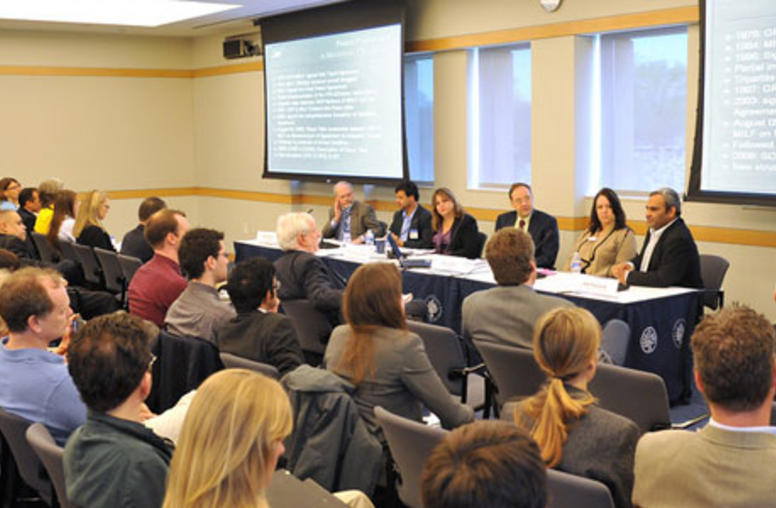
Peacekeeping without Guns
Experts on nonviolent peacekeeping presented their methodologies, lessons learned, and the way forward for the innovative field at the U.S. Institute of Peace (USIP) on March 21, 2012.
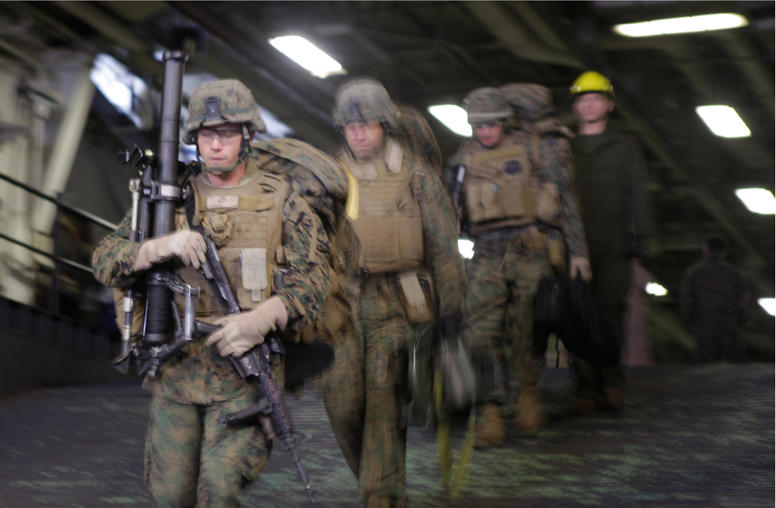
Strengthening the Civilian-Military Link: USIP and Navy-Marine Corps Coordination
The role of the Navy and Marine Corps is critical to the growing importance of the Asia Pacific region in national security strategy. Recently, conflict management and peacebuilding experts from the U.S. Institute of Peace participated in the Navy’s biggest amphibious exercise in a decade, Bold Alligator, as part of USIP’s expansion of civilian-military cooperation and training.
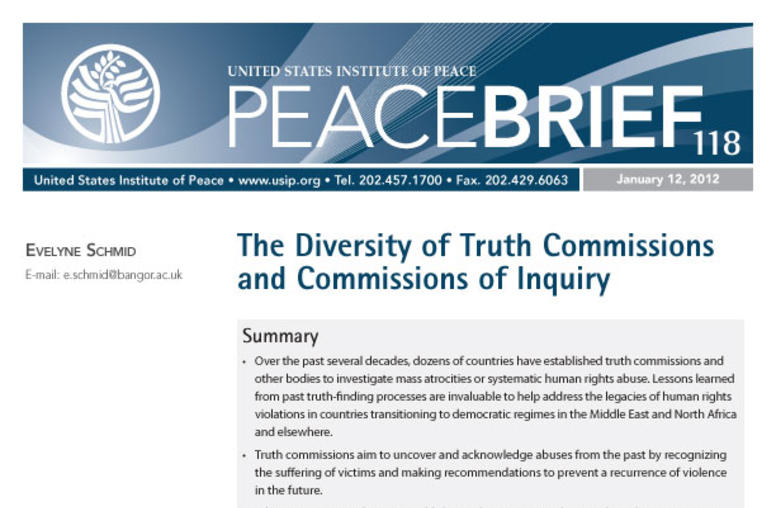
The Diversity of Truth Commissions and Commissions of Inquiry
Over the past several decades, dozens of countries have established truth commissions and other bodies to investigate mass atrocities or systematic human rights abuse. Lessons learned from past truth-finding processes are invaluable to help address the legacies of human rights violations in countries transitioning to democratic regimes in the Middle East and North Africa and elsewhere.
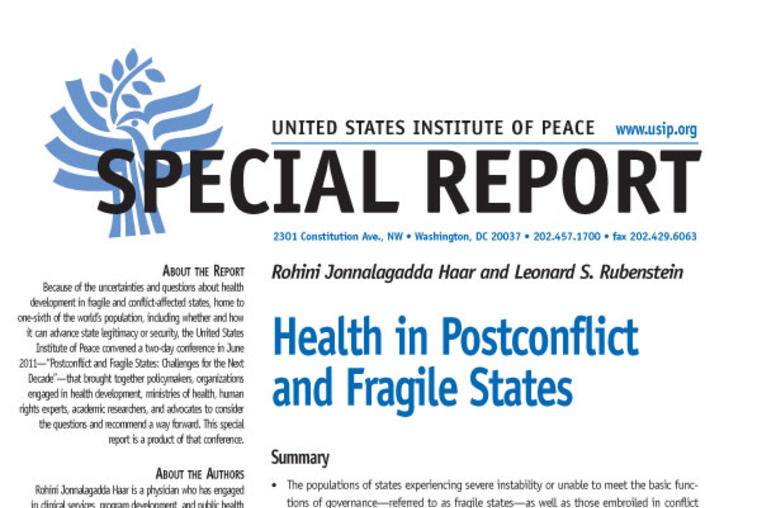
Health in Post-Conflict and Fragile States
Civilian health, health care workers, and health facilities disproportionately suffer in countries experiencing severe instability, but global health donors have yet to make developing health systems in such states a priority. Doing so could both make populations healthier and contribute to state legitimacy.
Justice and Security Dialogue
Justice and Security Dialogue brings together stakeholders at the local community level to strengthen rule of law and security by building lines of communication, increasing trust, sharing information, promoting accountability, and providing input on justice and security reform needs and options.
Handling Conflict by Peaceful Means
USIP leaders explain the effect that events around the world and here at home will have on the U.S., and the contributions the Institute can and does make during a time of tremendous challenge – and opportunity.
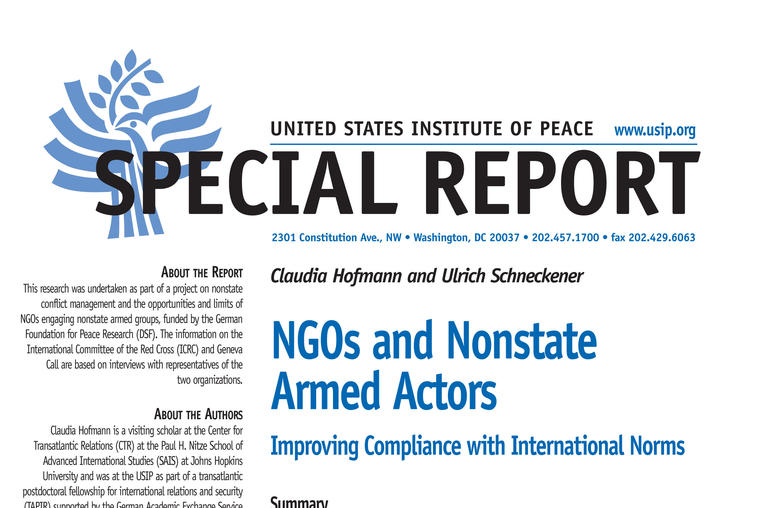
NGOs and Nonstate Armed Actors
Two seasoned NGOs engage nonstate combatants on international human rights law to get them to change behaviors, from eliminating use of landmines to protecting civilians. Their work can inform and complement other attempts at engagement.
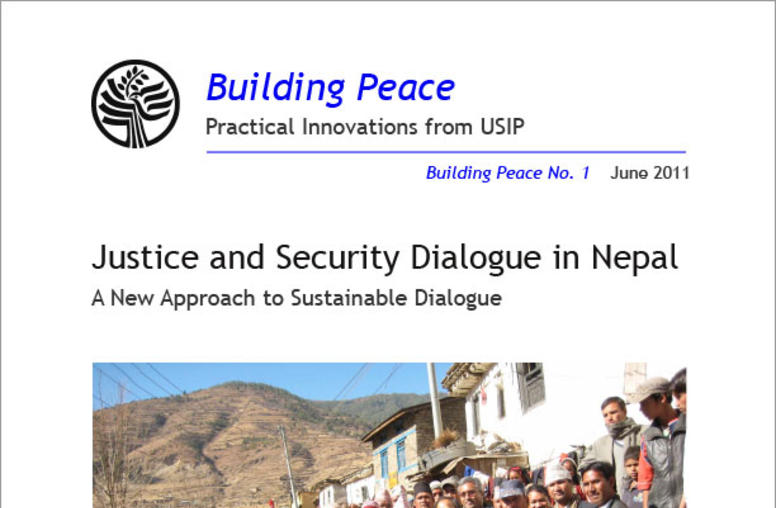
Justice and Security Dialogue in Nepal
Countries emerging from conflict will never achieve either security or justice unless civil society and security agencies learn to work together. This report describes a new approach to promoting dialogue and cooperation that has enabled the Nepal Police and local communities to bridge the gulf of mistrust and together start tackling crime and instability. This approach is now being customized to work in other war-torn societies.
Strengthening Justice and Security in the Himalayas
The U.S. Institute of Peace has unveiled a pathbreaking survey of attitudes toward the police, justice and rule of law in politically troubled Nepal, an effort that could help guide reforms needed to tame the violence and corruption plaguing the Himalayan nation’s young democracy.